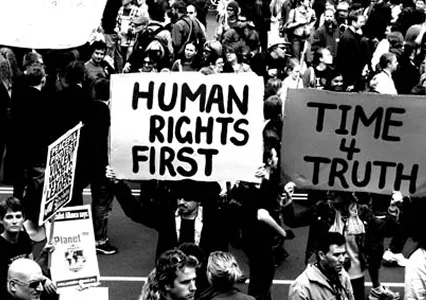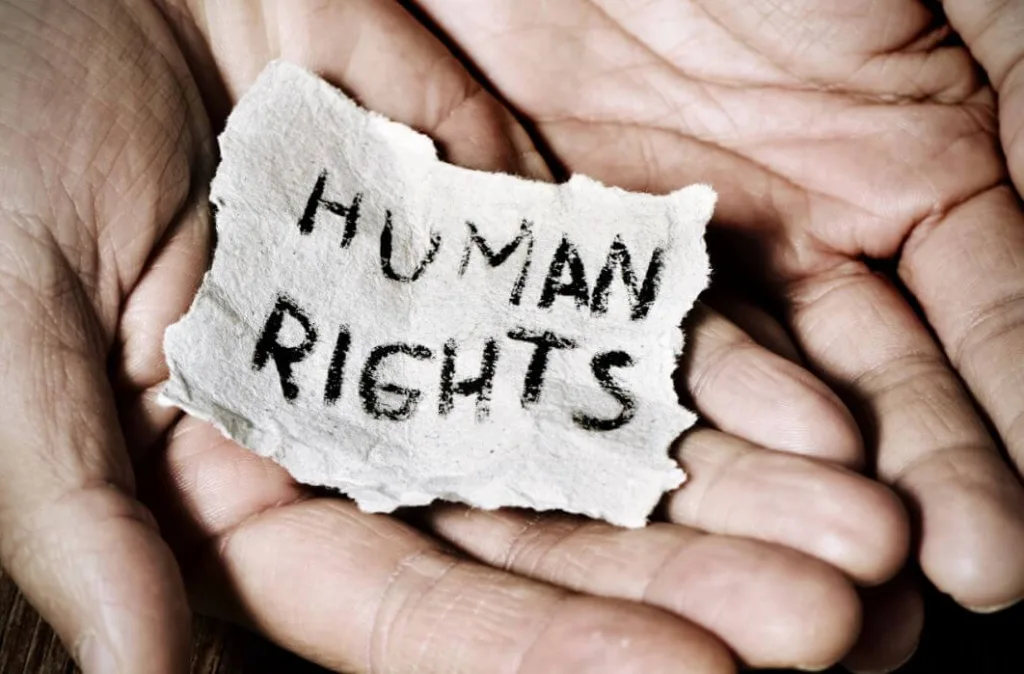
Violation of the Human Right -An Imprecation to Society, Culture and Humanity an Indian Perspective

There are horrifying examples of violence, ethnic cleansing, abhorrent torture, child abuse, manslaughter, and numerous other human rights violations almost every day. Crimes persist unchecked and unabated despite the adoption of the Universal Declaration of Human Rights (1948) and specific covenants established for the rights of children, women, and the disabled.
Human rights refer to the conception that everyone has the same rights and freedoms, regardless of their gender, sexual orientation, language, faith, or political views. All persons are born free and equal in dignity and rights, as mentioned in the 1948 U.N. declaration of Human Rights. Human existence depends on human rights. In the history of humanity, human rights have consistently been violated. Most of the time, the authorities oppressed the citizens and denied them their fundamental human rights.

Definition of Human Rights:
Human rights are defined as individual characteristics a person has that are considered essential to the full development of their personality. Human rights can be summarized as every person’s natural or natural privilege. Its scope includes the rights to life, freedom, equality, and respect. Human rights are defined as “rights, such as freedom, equality, education, employment, etc., without which man is incomplete and unable to develop his all-round development.”

Why the need for human rights?
Without the privileges of all people, it is impossible to imagine an equitable community. What justifies making that a prerequisite for human rights? We’ll find out in the main areas:
➢ The physical, social, and ethical development of our citizens depends on respect for human rights. The absence of a meeting prevents one from developing their identity.
➢ To eliminate the advantages, segregation, and inequality caused by people and to establish a society that depends on balance, human rights must be protected.
➢ Human liberties are essential to maintaining order.
Means to Violate Human Rights:
All people in the world, from conception to natural death, are entitled to certain fundamental liberties and rights known as human rights. No matter where you are from, what you believe, or how you choose to conduct your life, they still apply.
Economic, social, and cultural rights
Economic, social, and cultural rights are defined in the UDHR as including the right to employment, the right to education, and the right to good mental and physical health. Economic, social, and cultural rights are susceptible to violations by states and other players, just like all other human rights are as individuals.
➢ Evicting people by force from their homes (the right to adequate housing)
➢ Denying services and information about health (the right to health)
➢ Discriminating at work based on traits like race, gender, and sexual orientation (the right to work)
➢ Failing to provide maternity leave (protection of and assistance to the family)
➢ Segregating students based on disabilities (the right to education)
➢ Forbidding the use of minority languages (the right to participate in cultural life)
Some Key Human Rights Violations in India:
Freedom of expression
Several people have been arrested under the anti-sedition law for expressing their opposition to government policies. An Indian was arrested for even posting a comment on Facebook. Two men have been arrested under the Information Technology Act for sharing satirical images of a Hindu nationalist group.
Violence against women
In 2015, over 327,000 crimes were committed against women. Many of them belonged to marginalized communities. In Chhattisgarh, women are said to have been sexually assaulted by members of the military.
Children’s rights
Crime against children increased by 5% in 2015 compared to the previous year. Congressional amendments to child labour laws that allowed for some exceptions were opposed by child rights activists who feared they would affect marginalized groups and girls.
Conclusion:
Human rights violations are the most crucial problem facing the country today. These are issues that have been condemned at India and abroad. Today, there is endless recognition of the importance of human rights in the international structure. Nevertheless, it does not pause for a single moment to acknowledge the ambiguity as to its exact nature and scope or how international law is to secure these rights in their entirety.
An important practice that the historical background of human rights encourages us to do is to recognize that human rights are not static but emerge as a result of new ways of thinking about politics and changes in the international environment. Human rights are one side of the coin that gives them coveted opportunities, and the other side is the obligation that must be paid as a result of those freedoms.
It is also our duty not to endure any other life.







